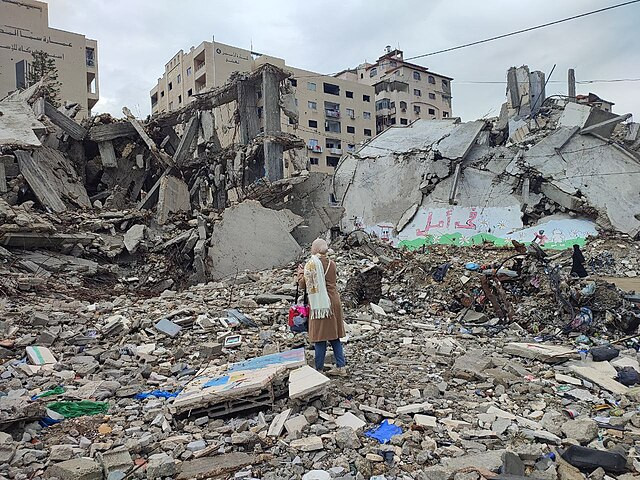At least 60,000 children in Gaza are at risk of severe malnutrition as Israel continues to block food, water, and humanitarian aid from entering the besieged enclave, according to Gaza's Ministry of Health. The warning comes six weeks after Israel imposed a near-total blockade on the territory of 2.3 million people, with humanitarian groups now describing the crisis as one of the worst they have ever faced.
"All basic supplies are running out," said Juliette Touma, spokesperson for the United Nations Relief and Works Agency for Palestine Refugees (UNRWA). "It means babies, children are going to bed hungry. Every day without these basic supplies, Gaza inches closer towards very, very deep hunger."
The World Food Programme said this week it has been unable to bring food into Gaza for over three weeks, leaving it with only enough supplies to sustain operations for a few more days. Twenty-one nutrition centers have already shuttered, cutting off support to at least 350 children suffering from acute malnutrition.
"Food distributions have almost stopped altogether," said Gavin Kelleher of the Norwegian Refugee Council. "Remaining stocks are being diverted to emergency hot meal kitchens, but even that will stop soon."
UN Secretary-General António Guterres on Tuesday rejected an Israeli proposal to monitor aid deliveries in Gaza, calling it an attempt to "callously limit aid down to the last calorie and grain of flour." Israel's military agency COGAT has argued that oversight is necessary to prevent aid from reaching Hamas, but UN officials, including Jonathan Whittall, have said there is no evidence of aid diversion.
Israel's actions have also disrupted water supplies. Mekorot, the Israeli national water company, halted 70% of Gaza's water access last week, according to municipal officials in Gaza. "Regardless of the cause, the consequences are dire," said Hosni Mehanna, a spokesperson for Gaza municipality. "If the flow of water from Mekorot is not restored soon, Gaza will face a full-blown water crisis."
Conditions on the ground are dire. In Khan Younis, displaced families like that of Rehab Akhras are surviving on single cans of beans shared among a dozen relatives. "We have survived the war and we survived the aistrikes as we wake up and go to sleep," she said. "But we can't survive the hunger, neither us nor our children."
Commodity prices have soared. A 25-kilogram bag of flour that once cost $6 now sells for over $60. Cooking oil has jumped from $1.50 to $10 per liter. A tin of sardines-once common-now fetches $5, well beyond the reach of most families.
Medical charity Médecins Sans Frontières reports seeing children and pregnant women suffering from extreme malnutrition. Some lactating mothers are no longer able to breastfeed due to starvation.
Israel has denied that a humanitarian crisis exists and insists its policy is aimed at preventing aid from falling into the hands of Hamas. "Israel is not transferring and will not transfer aid to the hands of terrorist organizations," the Israel Defense Forces stated this week.
Gaza's Health Ministry warned Wednesday that without the restoration of aid and vaccinations, especially for preventable diseases like polio, the health crisis will worsen.






